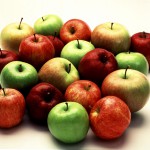Expected Russia’s joining the WTO cannot but affect its fishing industry. However, this will not force any significant changes into operation of coastal fishing companies, since they deliver their whole catch to domestic ports for its further processing or sale in domestic market. But for those Russian fishing companies that export their products to European countries the changes associated with entry into the WTO are crucial, and they shall prepare themselves to many new things.
It’s claimed that joining the WTO will enable Russian fishing companies to trade their products on equal terms with other EU countries. But the problem is that there are concerns related to lower competitiveness of domestic fish products since not all Russian products meet high European standards. Closely working with Russian fish suppliers that have relevant European certificates, I know that at many other enterprises certain EU regulations are not met. Many companies are not ready to introduce and adopt international standards, so it will take some time till they will be allowed to enter the European market with their products.
It is also worth noting that in order to gain from joining the WTO, Russian enterprises should increase volumes of deeply processed products, which will provide the biggest added value.
Source: www.superocean.net
